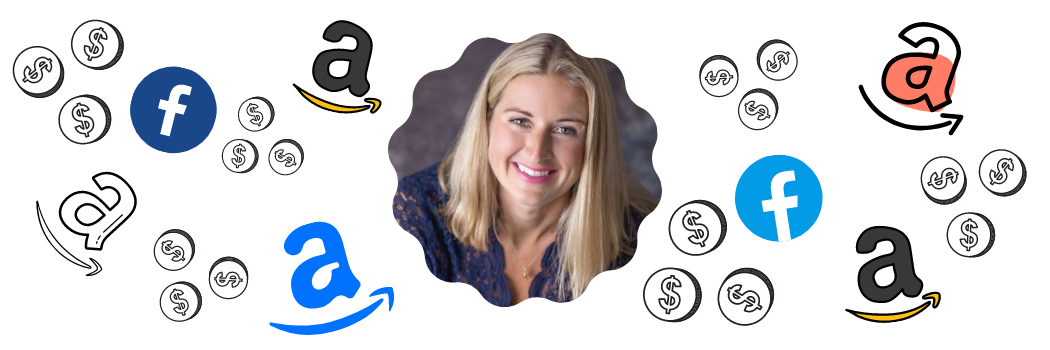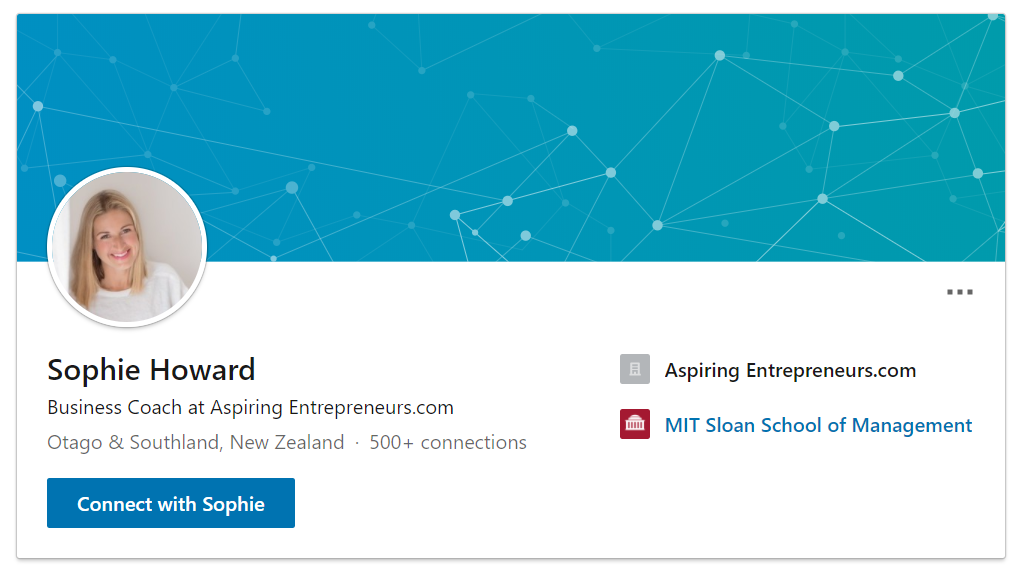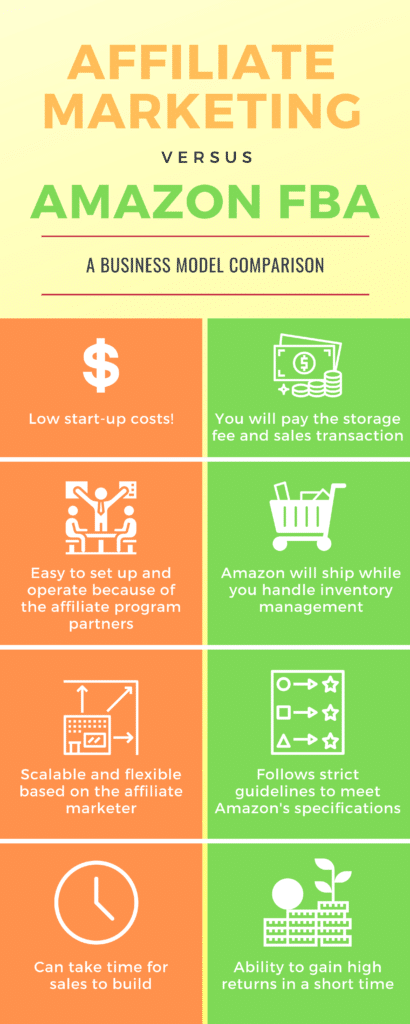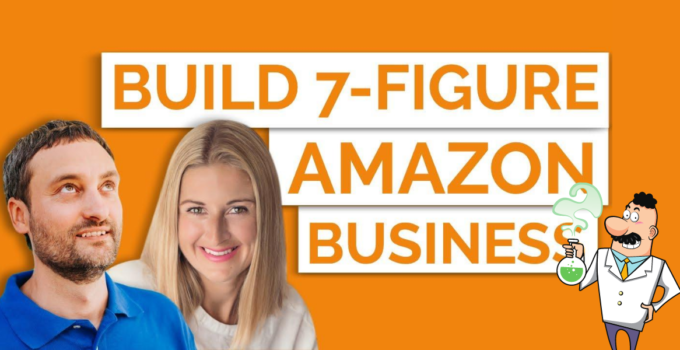As COVID-19 continues to spread throughout the world, more and more people are looking for online opportunities that can potentially supplement their income. While the internet may be filled with “opportunities,” you must remember that not every opportunity is actually legit.
Some are scams, and some are not even worth your time and effort and that’s why I’m sure that this is also one of the reasons why you clicked on this Blue Sky Amazon review!
With a quick search on Google, you might find that one of the most popular ways to earn passive income online is through Amazon FBA. FBA stands for Fulfillment by Amazon which encapsulates the whole process of the program: you sell, Amazon ships.
Sounds easy, right? 🧐
Well, this the reason why it is perfect for aspiring entrepreneurs who are in the market of trying their hands at eCommerce from a global perspective. But of course, jumping into the Amazon marketplace is not an easy task for beginners.
With that in mind, several FBA courses were created online to help sellers through their foolproof systems and time-tested marketing blueprints. At present, one of the most popular Amazon FBA courses is Sophie’s BlueSky (previously called “Product University” and “Amazon Navigator”).
And in this in-depth review, we will answer the biggest question: “what is Blue Sky Amazon about?”. Is Sophie Howard’s Amazon selling course worth it, or should I just try figuring out FBA by myself?
To answer that, let’s dig deeper by getting to know Blue Sky Amazon’s founder.
Who is Sophie Howard?
With the aggressive marketing on social media and email, you probably have come across Sophie Howard and her Amazon courses several times before. Even Reddit pages and Quora can attest to how hyped and recommended her training courses are especially for those who are new in the field.
Sophie, also known as “The Amazon Selling Queen”, is a New Zealander born in the U.K. She appeared in a variety of podcasts and video streams due to her amazing wealth system and digital courses, and success story in FBA. You can even find her on YouTube freely discussing her guiding principles and elaborating on her unique branding strategies.
What sets her apart from other inspirational entrepreneurs is that almost everyone can relate to her story – an everyday life hustler that’s trying to escape the 9-5 rat race.
Before she took the plunge into the Amazon, she worked as a transitional CEO for startups, which required her to travel most of the time. With a busy schedule like that, she got fed up with not having enough time to enjoy life with her growing family.
Wondering how to make additional income streams online, Sophie started her FBA business in 2014 while working part-time from home.
As evidence of how gritty she is as an entrepreneur, she was able to establish her private label for an organic tea brand called ”Higher Tea.” This brand became so popular on Amazon that she received an official offer from a company looking to acquire it.
In 2016, Sophie Howard published the book titled “Amazon Jetstream Income,” which features her whole FBA story, selling experiences, and her promise to help aspiring FBA entrepreneurs in launching their own business.
While the book may be of reasonable length and is written on an easy to digest manner, I was quite disappointed that there is not much information for beginners. I feel like it is more of a primer for the more educational Bule Sky Amazon course. If you still want to get your hands on the book and see for yourself, then feel free to do so.
What is Blue Sky Amazon about?
If you will look into her social media accounts, you will see that she is indeed quite famous in the field of FBA. Her Facebook community is continuosly growing at a rapid rate with 41,977 people following her every move on the page.
Also, her stats on YouTube are quite impressive with her 10,300 subscribers. While most of the videos reach around 800 to a few thousand views, three of her recent videos have garnered a spectacular number of views- 25k, 49k, and 65k! As a professional business coach, you can also find her on LinkedIn to check out further her experiences and qualifications. Let us now dive inside the Blue Sky Amazon Seller Academy course. This FBA course was structured by Sophie to include 14 modules that cover the entire Amazon FBA business model. It is organized into two courses to properly bridge the lessons.
Let us now dive inside the Blue Sky Amazon Seller Academy course. This FBA course was structured by Sophie to include 14 modules that cover the entire Amazon FBA business model. It is organized into two courses to properly bridge the lessons.
The first course is called Product University and it consists of six modules which last for about 25 hours. On the other hand, the second course, Amazon Navigator, offers eight modules with a course duration of about 9 hours.
I’m sure that you are curious about the content of these courses. Then fear no more since I will give you the rundown of the details and the pros and cons for each of the 14 modules.
What’s included in the Product University Course?
Module 1: Foundation
From the name itself, the first module is designed to layout solid background knowledge for the course. It focused on answering practical questions that beginners may have regarding FBA and on how one can immediately build a funnel faster.
Pro: Sophie did a good job of exploring some of the basic concepts and misconceptions regarding FBA. The way she elaborates complicated topics reflects why she is qualified to teach this course.
Con: The structure of the module is a little bit out of place. What I can suggest is for you to review the video again to make sure that you understand the discussion around sales funnels.
Module 2: Product Selection Strategy
This module is constructed to provide an understanding of how she perceives product selection- high minimum order quantity (MOQ) equates to the lowered competition.
Pro: The module gave a fresh view on how one should sell their products online. Sophie highlighted that instead of just focusing on what to sell based on the current market, her students should focus on creating products that are expected to sell for a long time due to its exclusivity.
Con: The module is quite long compared to other modules in the courses.
Module 3: Basics of Sales Funnels
This module delves into the overview of sales funnels and its components, the use of Canva as a graphic design tool, ways on how to set up a Facebook ad campaign, and a Q&A.
Pro: The module gave a simpler explanation of the technical concepts of sales funnels. She also gave useful and ethical tips for aspiring marketers. One example of that is when she highlighted that you should never auto-enroll the customers into a full-priced subscription just because they bought the sample.
Con: Back then, the quality of the content may be very relatable. But at present, I firmly believe that the overview given is not on par with the trends today. Additional information should be added aside from the Facebook Ad campaign.
Module 4: Hiring Virtual Assistants
This module will describe the common questions regarding outsourcing- what skills to look out for, how to conduct trial projects, training for VA, and examining their outputs.
Pro: Sophie equips her students with the knowledge on how to use UpWork and Fiverr for finding VA’s. She also shared a checklist at the end of the session which is useful for those who are just starting with the concept of outsourcing. More importantly, her explanation of how she handles each of her assistants is probably one of the most comprehensive explanations available.
Con: No cons for this one!
Module 5: Selling on Amazon
This module talks about the nitty-gritty of how Sophie got started on Amazon. She was honest in enumerating the pros and cons of the business. Besides, she walked her students through the important stuff of business such as how to set up a seller account, get a license, work on Amazon PPC, and planning keywords.
Pro: Honestly, for me, this is one of the highlights of Sophie’s first course. Not only is it organized, but it also covers everything from scratch without the fluff. She also masterfully integrated into the course her perspective regarding the importance of targeting the right audience and offering them the right product to gain positive reviews.
Con: Again, this is hands-down a good module.
Module 6: Forgotten Product Sourcing Places
This module equips learners with the skills needed to unearth unique product sources.
Pro: Sophie elaborated on product searching ideas. The highlight of the module is when she introduced DS Amazon Quick View Extended, a chrome extension for sleuthing product ideas.
Con: I think that the module was quite short, and it could have been better if she went out of her way to discuss more on her advanced product sourcing places/websites.
What’s included in the Amazon Navigator Course?
Module 1: Welcome Message
This module covers the foundational concepts such as the successful mindset, importance of setting clear goals, knowing costs and profit numbers, getting a business license, and how to sign up for a professional Amazon seller account.
Pro: Sophie discussed how the right mindset can help in the overall growth of the business. She started the module strong by sharing the first few steps to take when getting started on Amazon.
Con: No cons for this module.
Module 2: What you don’t know about branding?
The second module deals with Sophie’s branding strategy by setting out her tactics on how to discover products and put them the Amazon Marketplace.
Pro: This module is very informative as Sophie discussed here her 4-phase process on selecting products – Google search, Facebook search, Facebook audience insights, and Amazon search.
Con: While Sophie did a fantastic job in explaining her strategy, it falls short on how to do a design production.
Module 3: How to find products for the long-term
The third module sheds light on the different sources of products for selling in Amazon. Some of the common places she highlighted are Alibaba, AliExpress, and 1689.
Pro: Sophie was able to convert me into thinking that sourcing from common places will not get me anywhere in the FBA business. With that being said, one must be open to the idea of product selection travels.
Con: There is no step-by-step guide which makes it hard for students to follow her recommendation in terms of interacting with possible suppliers.
Module 4: How are your listings?
The fourth module is focused on how to construct title and product descriptions.
Pro: This module encouraged me to write a story for the brand by giving emotionally relatable descriptions. At present, if stories are packaged carefully, it can spread on social media like wildfire.
Module 5: Buying the entire shipment
The fifth module is the shortest one in the Amazon Navigator course as it offers tips on shipping, samples, and labeling.
Pro: Since it was short, the descriptions became more practical and straightforward.
Module 6: Product Launch
The sixth module discusses five major points such as amazon advertising, following amazon seller central guidelines, autopilot ads, and coupon codes.
Pro: If you are new to FBA, you should enjoy this module since Sophie gave lots of advice and warnings that can have a huge impact on your listings. One example of that is the danger in coupon code-if the number of coupons is not limited, your inventory may take a huge fall.
Module 7: Maintaining your account
The seventh module focuses on dry tasks such as generating business reports, getting help from Amazon, staying in control of your business, and optimizing customer management.
Pro: The module offers a fresh idea on how entrepreneurs should keep an eye on reports and statistics. Also, Sophie illuminated the minds of sellers who do not have banking setup for their business.
Module 8: Going above and beyond
The final module speaks of envisioning the future of FBA by exploring topics such as outsourcing work to VA’s, building a fool-proof team, developing a visionary mindset, and expanding business.
Pro: Sophie elaborated on the relevance of building a team for the future. More importantly, she instructed students to always be on a lookout for additional products and consider doing joint ventures.
Should I Join Sophie Howard’s Blue Sky Amazon Course?
Now that I have answered what Blue Sky Amazon is about, I am sure you are having thoughts on whether you should join the course.
Well, unlike other FBA courses, this one does not promise that you will understand the concept in a matter of hours. Blue Sky Amazon course is a good investment in terms of providing realistic information at a friendly pace which is perfect for consumers of all levels.
Sophie made sure that her walkthroughs are straightforward, and she also gives advice that is based on her actual selling experience. Price-wise, you might have to think about it since $3,500 is a lot of money to shell out.
In summary, I firmly believe that the modules are beginner-friendly with its uncomplicated modules, coaching sessions, and weekly group webinar. With her presence on social media sites, customers can freely reach out to her whenever they have specific questions regarding FBA.
More importantly, I think that how she presents herself (both as an entrepreneur and as a wife/mother) and her success story is what makes her more relatable than other popular FBA mentors. I can summarize my thoughts regarding Blue Sky Amazon in two statements:
Statement 1: Blue Sky Amazon is worth your time
Setting up an Amazon FBA is never easy. Launching a business on Amazon does not only consume a lot of time, but it also costs a lot of money. It is a steep learning curve for aspiring entrepreneurs since working in FBA requires time, tools, and skills as highlighted by Sophie’s modules.
For me, no one should dive into Amazon with their eyes closed hoping that their investments will somehow grow. Rather, anyone who is interested should, at the very least, try to learn from courses like Blue Sky Amazon first.
Statement 2: Blue Sky Amazon is best for beginners
Sophie Howard’s course is intended for beginners which means that the content and the way it was elaborated are already simple and easy to follow. Instead of spending time on D.I.Y FBA videos on YouTube, enrolling in an online course with a speaker who has a credible experience is still better. Also, the fact that it has a close-knit online community will enable you to ask questions and seek support anytime.
Is there a better alternative?
If you are aspiring to build your own online business to quit your 9-to-5 job, you might be spending countless times wondering if there is a better business model that does not need initial capital.
Of course, there is, and I’ll gladly share it with you.
Of all the business models I have tried, the concept of affiliate marketing still proves to be supreme. That’s why I want to invite you to join me and many like-minded individuals in this caring community that will teach you the ways of affiliate marketing and how you can run a viable business online.
What sets it apart from FBA is the fact that you do not need to manage and consistently check your inventory for stocks. As a matter of fact, I want you to easily understand the major differences and that’s why I prepared an easy to read graphics below. Also, if you want to learn more about my number one reccomendation for making money online, then read this review.




